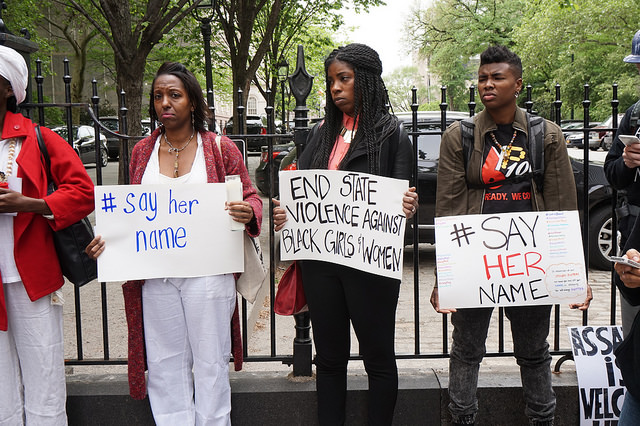Are Black Women Invisible?
Why do we hear more about violence against black men than black women?

Stephen Henderson speaks with Kidada Williams, Professor of African American History at Wayne State University, Sharon Davis, founding member of the Institute for Healing of Racism and author of A Safe Place to Talk About Race, and Desiree Cooper, Freelance Journalist, women’s right’s activist, and author of the upcoming book of short fiction Know the Mother. They discuss the intersection of sexism and racism, how America perceives black women, and the role black women play in activism.
- Focus on black men: Stephen asks why conversations about race tend to focus on black men rather than black women. Williams says that the default image associated with blackness is masculine, so black women can be rendered invisible. She gives President Obama’s My Brother’s Keeper program as an example of male-focused outreach.
- Uplifting community: Williams says that some of the reason outreach focuses on men is because of the assumption that uplifting black men uplifts the whole community. She says that historically this is not true because black women and girls consistently gives back to the whole community while men do not to the same degree.
- Social media and cultural awareness: Stephen says that he feels America is at a unique point in race relations, because of how people are responding to and discussing the violence they learn about. Davis says people are exposed to more information because of social media. She says people must be careful not to reinforce violent stereotypes.
- Sandra Bland: Stephen says he sees racial and gender dynamics in the video of Bland’s arrest. He states that he does not believe she would have been talked down to or treated as aggressively if she were a man, black or white. Williams and Davis agree.
- Physicality: A caller relates the conversation to how the media focuses on critiquing Serena Williams’s body. Williams thinks that this is because people feel Serena is not supposed to be in the tennis world as a black person, but they cannot critique her game. Davis says they are critiquing an extraordinary woman, and brings up the politics of hair and skin color.
- Respect vs. deference: A caller says that his father was a Detroit traffic cop who said he gave more tickets to black women because they were more disrespectful. Cooper says that this brings up the “tectonic plates of race”, and reflects the dominant patriarchal feeling that certain people owe deference to authority. Williams asks if we can watch the Sandra Bland arrest video and pinpoint who was first disrespectful to whom and when, and points out that she has seen videos of white women acting disrespectful towards cops without eliciting an aggressive response.
- Black Lives Matter movement: Cooper hopes that black women’s interests will not be subsumed into the needs of the race as a whole in this wave of protests and activism. She says the #BlackLivesMatter movement is and has been led primarily by black women, and Williams adds that it has been led by black queer women.
Click the audio link above to hear the full conversation.
